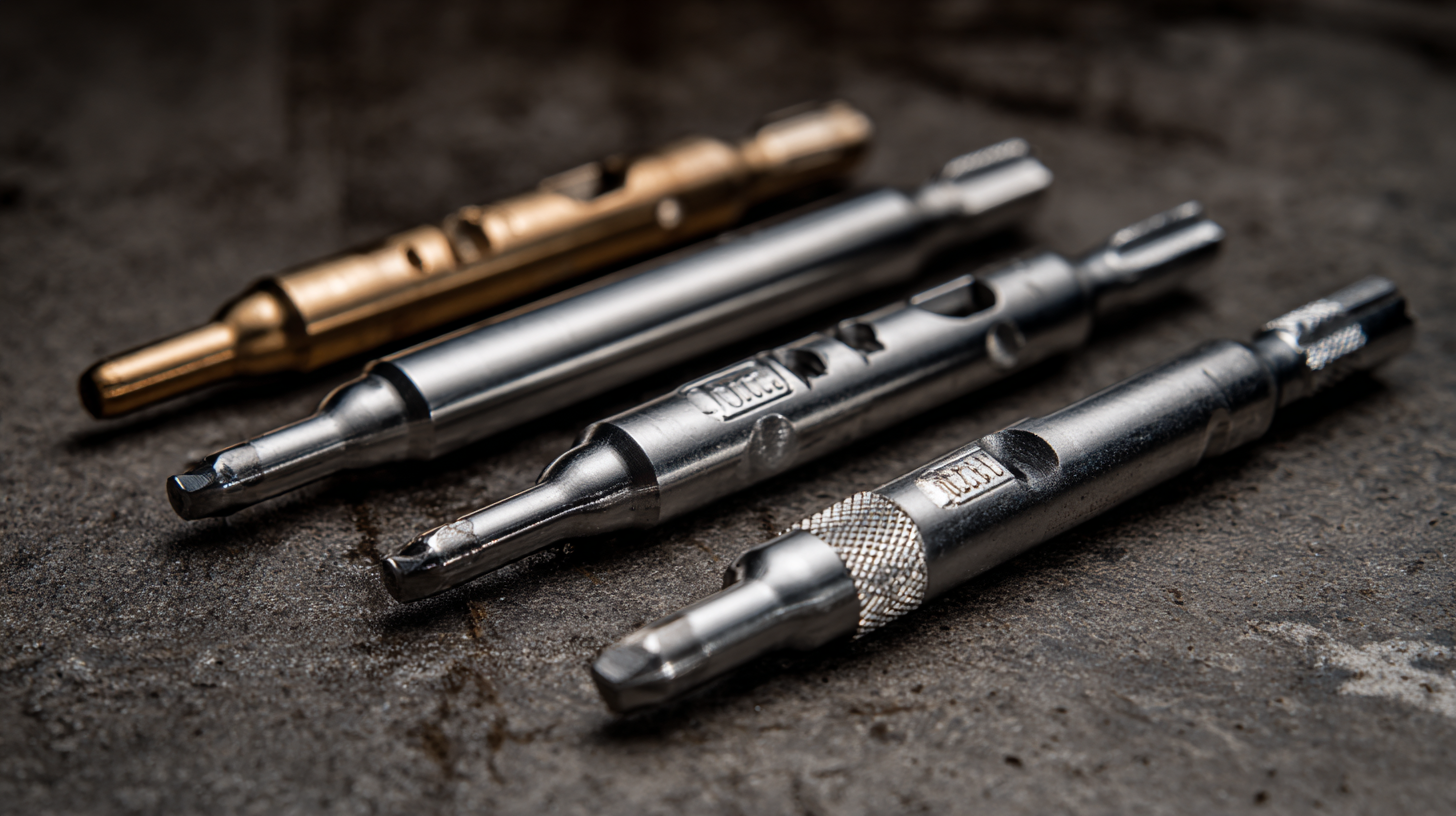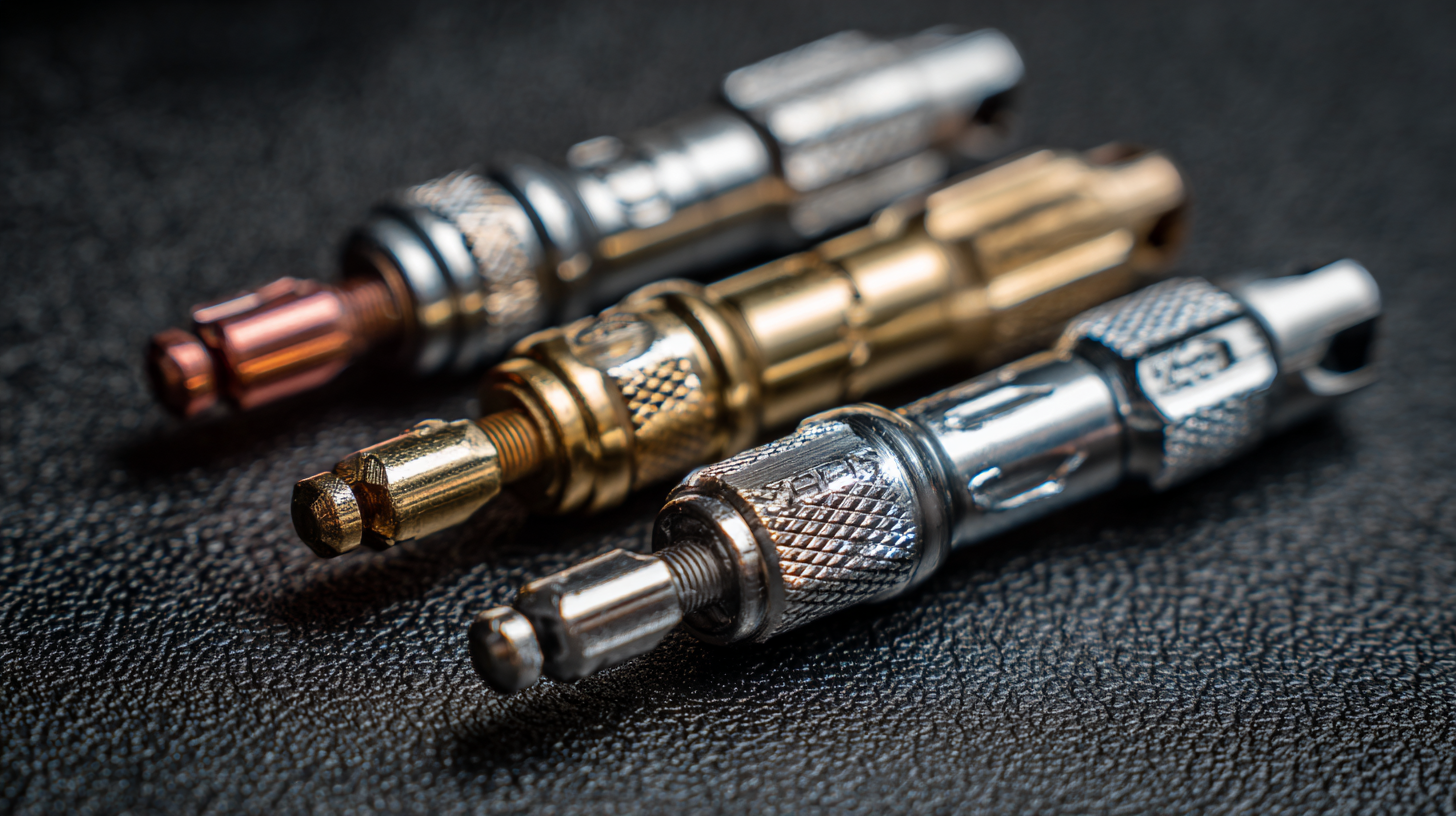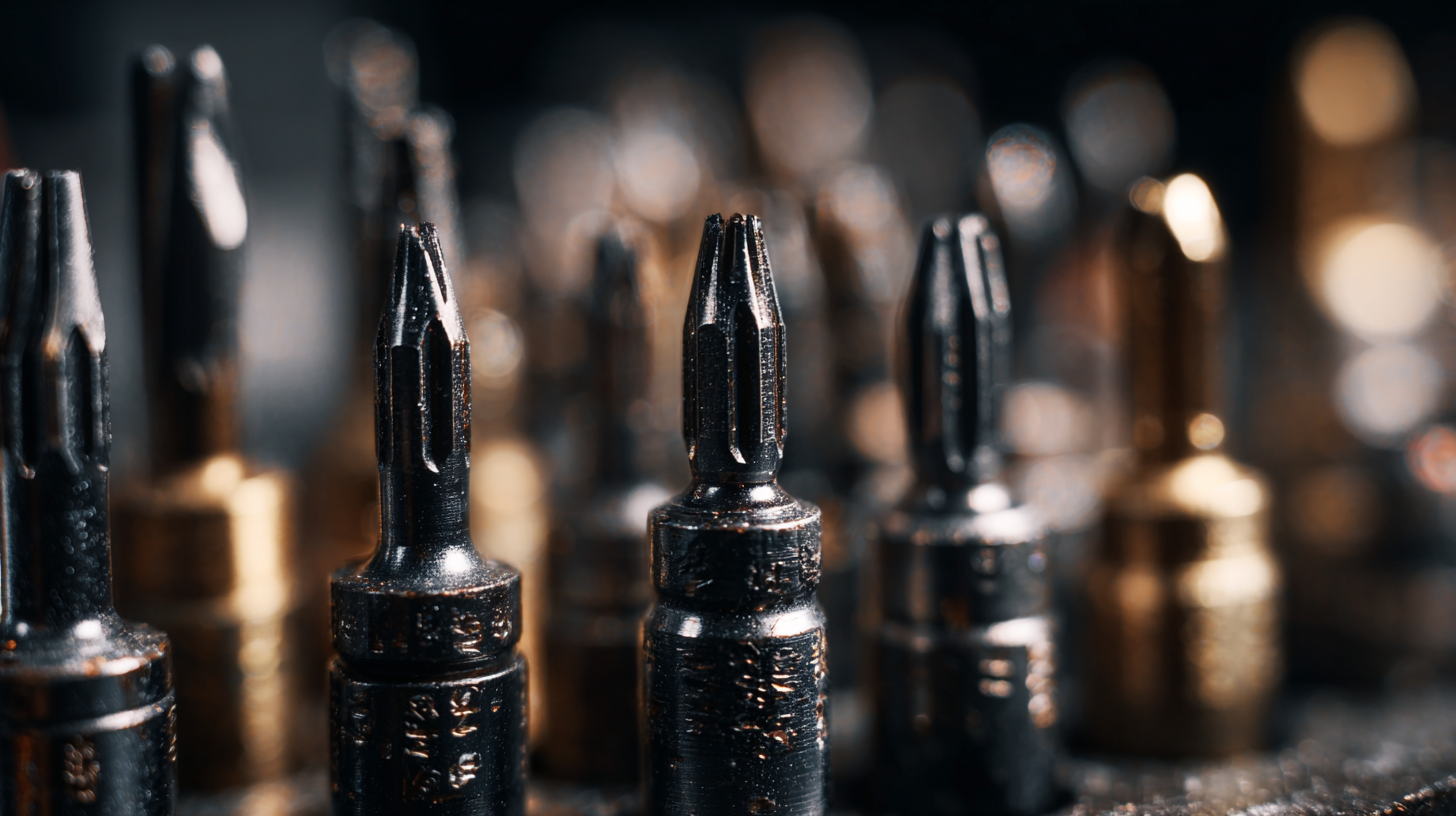Understanding the Best Screwdriver Bit Options for Every Job
In the world of DIY projects and professional construction, the right tools can make all the difference in achieving quality results. Among these essential tools, the screwdriver bit stands out as a versatile component essential for various fastening tasks. However, with numerous options available on the market, selecting the ideal screwdriver bit can be daunting.

This blog will delve into understanding the best screwdriver bit options for every job, emphasizing the importance of choosing high-quality suppliers that meet your specific needs. We will explore top strategies for identifying trustworthy suppliers and ensuring that you have access to the finest screwdriver bits, which not only enhance efficiency but also contribute to the longevity and reliability of your projects.
Whether you are a seasoned tradesperson or a weekend warrior, mastering the selection of screwdriver bits is crucial for unlocking your potential in any undertaking.
Choosing the Right Screwdriver Bit: Types and Their Uses
When it comes to selecting the right screwdriver bit for a specific job, understanding the types available is crucial. There are several common types of screwdriver bits, including Phillips, flathead, Torx, and hex bits, each designed for different types of screws and tasks. Phillips bits have a cross shape that allows for better grip and torque, making them ideal for most household projects. Flathead bits, on the other hand, are better suited for slotted screws typically found in older furniture or electrical covers.
Tips: Always ensure compatibility between your screwdriver and the bit to avoid stripping screws. If you're working on a delicate project, consider using magnetized screwdriver bits to hold screws in place, preventing them from slipping. Additionally, for repetitive tasks, investing in a bit holder can enhance efficiency and provide a more stable grip.
Torx and hex bits are specialized for security screws and hex bolts respectively, commonly used in automotive or electronic applications. Utilizing the proper screwdriver bit can make a significant difference in efficiency and effectiveness. Always assess the screw type and material before choosing a bit to avoid damage to both the screw and the workpiece.
Understanding Common Screwdriver Bit Sizes and Compatibility
When it comes to selecting the right screwdriver bit for a specific job, understanding common sizes and compatibility is crucial. Generally, screwdriver bits are categorized into standard sizes such as Phillips, flat, Torx, and hex. According to a recent industry report by the Tool Manufacturers Association, Phillips #1 and #2 bits account for over 60% of screwdrivers sold, highlighting their popularity across various applications. Flat bits still maintain a strong presence in household tools, while the rise of Torx and hex bits is noted in automotive and electronics sectors where precision is key.
When choosing a screwdriver bit, consider the type of screw you're dealing with. For instance, a Phillips bit offers a better grip on screws compared to flat bits, which reduces the likelihood of cam-out. Additionally, compatibility with your power tool matters. Always check the shank size of the bit to ensure it fits securely into your drill or driver.
Tip: For those who frequently work with multiple screw types, investing in a versatile bit set that includes various sizes and types can save you time and frustration. Another tip is to keep your bits organized and marked by size, which allows you to quickly find the right one and enhances work efficiency.
Understanding the Best Screwdriver Bit Options for Every Job - Understanding Common Screwdriver Bit Sizes and Compatibility
| Bit Type | Common Sizes | Compatible Screws | Best Use Cases |
|---|---|---|---|
| Phillips | #0, #1, #2, #3 | General-purpose screws | Woodworking, drywall installation |
| Flat (Slotted) | 1/8", 3/16", 1/4" | Flat head screws | Older electronics, carpentry |
| Torx | T10, T15, T20, T25 | Security and machine screws | Automotive, furniture assembly |
| Hex | 1/4", 5/16", 3/8" | Hex head screws | Mechanics, construction |
| Square | #1, #2, #3 | Square drive screws | Decking, cabinetry |
The Importance of Quality: Materials and Manufacturing Standards
When it comes to selecting screwdriver bits, the quality of materials and manufacturing standards play a crucial role in performance and durability. Just as the recent government initiatives emphasize the importance of high-quality development in the steel industry, the same principle applies to tool manufacturing. Using high-grade materials such as hardened steel or titanium can significantly enhance the toughness and lifespan of screwdriver bits, allowing them to withstand rigorous tasks without stripping or breaking.
Moreover, adherence to strict manufacturing standards ensures that each bit is consistently produced at a high caliber. This not only guarantees compatibility with various screw types but also helps in reducing the risk of tool failure during critical jobs. In an environment where precision and efficiency are paramount, investing in quality tools is integral to achieving successful outcomes in any project. Just as the industrial sector strives for innovation and excellence, so should DIY enthusiasts and professionals alike aim for the best when it comes to their tools.
Understanding the Best Screwdriver Bit Options for Every Job
Certification and Compliance: What You Need to Know for Imports and Exports
When dealing with imports and exports, understanding certification and compliance is crucial for ensuring safety and quality standards in all products, including tools like screwdriver bits. The regulatory landscape can vary significantly from one country to another, making it essential to familiarize oneself with the specific certifications required for the markets you wish to enter. For instance, many regions require compliance with international standards such as ISO or ANSI, which ensures that the tools meet predetermined safety and performance criteria.
Additionally, it's important to pay attention to documentation and labeling requirements. Importers must often present certificates of conformity, test reports, and other paperwork that demonstrate compliance with local regulations. Neglecting these requirements can lead to delays at customs, financial penalties, or even the rejection of shipments. Therefore, investing time in understanding the necessary certifications and ensuring that your screwdriver bits adhere to these standards will not only facilitate smoother trade processes but also enhance trust with your buyers.

Tips for Maintaining and Storing Your Screwdriver Bits Properly
Maintaining and storing your screwdriver bits is essential for ensuring longevity and optimal performance. To keep your bits in top shape, it’s crucial to clean them after each use. Removing debris and metal shavings prevents corrosion and wear, which can diminish their effectiveness. A simple wipe with a cloth or a gentle brush can do wonders for prolonging their life. Additionally, consider using a bit holder with a protective cap to shield the bits from dust and moisture when not in use.

Proper storage solutions also play a critical role in maintaining your screwdriver bits. Organizing them in a dedicated toolbox or a magnetic strip can help prevent damage and ensure easy access. Avoid tossing bits into a drawer where they can get tangled or damaged by other tools. Labeling compartments based on size or type can further streamline your workflow, allowing you to find the exact bit you need quickly. This proactive approach to maintenance and organization not only keeps your bits in excellent condition but also enhances your efficiency on the job.
